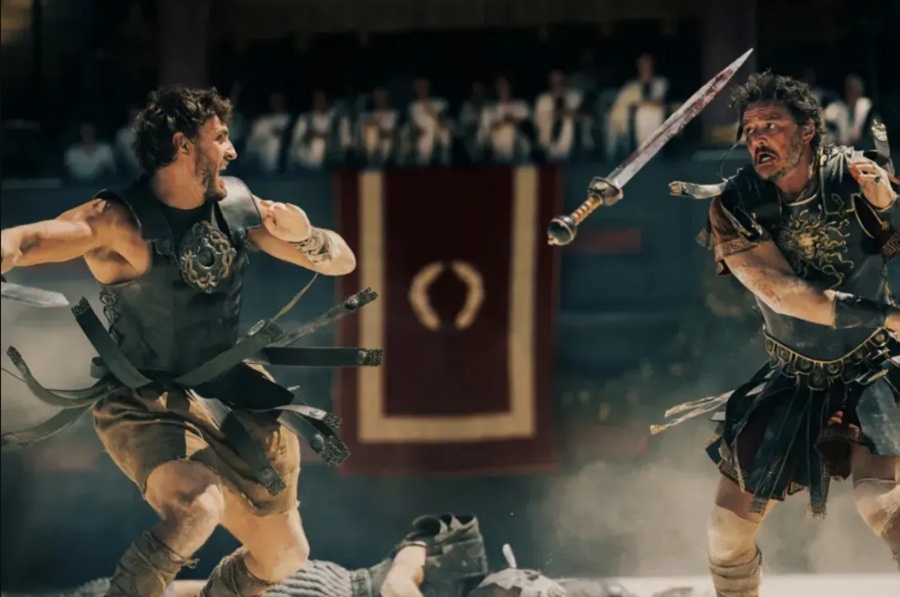Ridley Scott's 'Gladiator' returns after two decades with a new legacy

Published :
Updated :

Gladiator (2000) is a timeless film known for its historical drama, storytelling and memorable character development. It tells the intriguing story of revenge and justice in ancient Rome, featuring Russell Crowe as Maximus, a former Roman general who becomes a fighting gladiator.
The emotional power of the story, along with the film's visuals and Hans Zimmer's background score, makes it a standout film. It won five Academy Awards, including Best Picture and Best Actor for Crowe, showing courage, honesty, and power themes.
Twenty-four years after Ridley Scott's Gladiator won hearts and awards, its sequel, Gladiator II, has arrived. The first film was known for its epic story and powerful acting, especially by Russell Crowe as Maximus.
It brought ancient Rome to life in a grand and personal way. Can the sequel live up to the original after all these years?
Gladiator II picks up the story with new characters and old problems in Rome. The focus is on Lucius Verus, played by Paul Mescal, who steps into the arena under challenging circumstances. The film is all in for big adventures and tough battles for Lucius, making viewers wonder how he will handle his new role.
Though different in tone from Crowe's, Mescal's performance brings a fresh perspective to the familiar setting. His portrayal of Lucius as a thinker rather than a brute is compelling yet lacks the raw intensity that Crowe delivered.
As the cunning Macrinus, Denzel Washington steals the show as a formerly enslaved person who rose to power and schemed for the throne by his will and wit.
However, the narrative occasionally feels overstretched, trying too hard to mirror the grandeur of the original without forging its unique path.
The film's attempt to balance nostalgia with experimental action sequences is its strength and downfall.
The action sequences, including a battle involving a rhinoceros and a recreated naval clash in the Colosseum, show advanced visual effects that outshine its predecessor.
Still, these moments sometimes overshadow the emotional displays that make Gladiator so memorable. The dialogue, trying to mimic the profound messages of the first film, often feels forced and leaves the characters' deeper motives unclear.
For fans of the original Gladiator and newcomers alike, Gladiator II offers reasons to watch. It revisits themes like honour, revenge and justice and adds new layers that reflect today's world.
The film connects with audiences by showing the struggles and triumphs of its characters, inviting everyone to experience the drama and action of ancient Rome.
Gladiator II aims to be more than just a follow-up after two decades. It tries to make its own identity while staying true to the spirit of the original. With a fresh take on familiar themes, it encourages a new generation to explore the story of Rome. As viewers watch the battles and stories unfold, the film invites them to think about the never-ending appeal of such epic tales.


 For all latest news, follow The Financial Express Google News channel.
For all latest news, follow The Financial Express Google News channel.